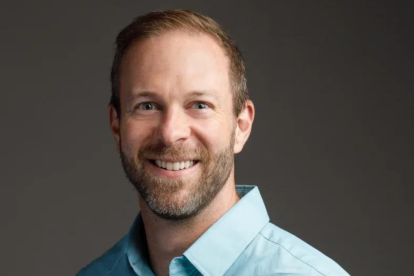The Impact of Nicotine on Mental Health

Nicotine use has lasting impacts on both mental and physical health. Understanding that those suffering with mental health conditions are more likely to use nicotine products, the BrightQuest team has developed a Nicotine Support Program (NSP) to aid in smoking cessation.
What is nicotine?
Nicotine is a chemical compound traditionally derived from the tobacco plant, though synthetic nicotine made in laboratories is becoming more common. Products containing nicotine include cigarettes, cigars, e-cigarettes (vapes), water pipes (hookah or shisha), pouches, chewing tobacco, and others. These products contain nicotine alongside additives that can harm health and lead to addiction.
Interestingly, nicotine has been used as a pesticide since the 16th century, and its derivatives remain some of the most effective insecticides in use today.
How does nicotine affect the brain and mental health?
Nicotine has significant effects on the brain and can exacerbate symptoms of various mental health conditions. When consumed, it triggers the release of neurotransmitters and activates the sympathetic nervous system, causing a heightened “fight or flight” response.
Impact on Adolescents and Young Adults
Nicotine is particularly harmful during developmental periods, such as childhood and adolescence. Use during these stages is linked to lasting cognitive and behavioral impairments, including issues with memory, attention, and learning. Notably, quitting nicotine does not worsen mental health symptoms, contrary to some myths.
Connection to Other Substances
Nicotine use increases the risk of other substance use. Smokers are 3 times as likely to also struggle with the use of illicit substances. Moreover, smoking interacts with over 30 medications, including antipsychotics, antiseizure drugs, blood thinners, and birth control, potentially diminishing their effectiveness.
What is nicotine use disorder (NUD)?
Nicotine use disorder (NUD), also called tobacco addiction, tobacco use disorder, and nicotine dependence, is a medical condition characterized by physical and psychological dependence on nicotine. Recognized as a public health threat, NUD can lead to severe health issues, including:
- Cardiovascular disease
- Lung disease
- Cancer
- Neuropsychiatric complications, including stroke and dementia
- Reproductive complications
- Other conditions such as cataracts, osteoporosis, and gum disease
Symptoms of NUD include:
- Inability to quit smoking despite wanting to stop
- Experiencing withdrawal symptoms when trying to quit
- Continuing to smoke despite health problems
- Avoiding social activities where smoking isn’t allowed
Nicotine’s addictive nature lies in its ability to release dopamine in the brain, creating pleasurable sensations. When nicotine levels drop, cravings and withdrawal symptoms emerge, making cessation challenging.
Why address nicotine use?
Smoking is a leading cause of preventable death in the U.S., and nicotine is the top cause of death among people with mental illnesses. Alarmingly, 31-44% of tobacco in the U.S. is consumed by individuals with mental health or substance use disorders. Despite these statistics, over two-thirds of smokers report wanting to quit—a rate higher than in the general population.
Additionally, quitting nicotine increases the likelihood of long-term abstinence from alcohol and other substances, highlighting the importance of addressing nicotine use as part of broader substance use disorder treatment.
Are there evidence-based treatments for nicotine use disorder?
Yes! There are effective treatments for NUD, including:
- Behavioral Counseling – Counseling benefits all patients and helps them develop strategies to quit.
- Pharmacotherapy – Medications, including nicotine replacement therapy (NRT) and other prescription medication, support cessation efforts. Combining medications with counseling is more effective than either approach alone.
- Social Support – Programs like Alcoholics Anonymous (AA) or SMART Recovery have shown success with substance use disorders. Studies have shown that social interventions are also useful for NUD, but unfortunately many are often not designed to address nicotine use.
Combining these three approaches—biological, psychological, and social—along with consistent follow-up, maximizes success rates. Studies have shown that participants in residential smoking cessation programs have nearly twice the rate of continuous abstinence compared to those in outpatient programs.
Introducing the Nicotine Support Program at BrightQuest San Diego
The Nicotine Support Program (NSP) at BrightQuest San Diego is a comprehensive, evidence-based program designed to help individuals overcome NUD using a biopsychosocial approach. The NSP provides support tailored to each participant’s goals and challenges, offering interventions at multiple stages of readiness for quitting nicotine.
Key Features of the NSP:
- Development of personalized quit plans
- Integration of biological, psychological, and social interventions in both individual and group formats
- Emphasis on goal development and sustained recovery
The NSP helps participants tackle nicotine dependence regardless of their initial motivation to quit, ensuring support for clients at every stage of their journey.
How does the NSP align with national standards?
The Nicotine Support Program adheres to national guidelines for smoking cessation, including recommendations from the U.S. Preventive Services Task Force and CDC, which emphasize:
- Screening all patients for tobacco use and encouraging cessation.
- Providing interventions for every individual who smokes.
- Combining behavioral counseling with pharmacotherapy for the best outcomes.
Additionally, the NSP aligns with the American Psychiatric Association’s Position Statement on Tobacco Use Disorder and the Veterans Health Administration National Practice Guidelines for Tobacco Use Treatment.
About the Author

Dr. Eric Rafla-Yuan | Psychiatrist
Eric Rafla-Yuan, M.D. is a board-certified physician, researcher, educator, and policy expert. He is a voluntary assistant clinical professor in the Department of Psychiatry at the University of California San Diego, where he founded and led the psychiatry residency diversity committee. In this role he teaches other physicians and medical students, as well as social workers, nurses, and other professional students. He graduated medical school and completed additional training in bioethics at the Vanderbilt University School of Medicine, and completed residency training at the UC San Diego Community Psychiatry Program.
As a board certified psychiatrist, Dr. Rafla-Yuan works with patients of all ages and specializes in trauma and development. For many individuals, the often-resulting challenges of anxiety, depression, and posttraumatic stress disorder (PTSD) get in the way of performing their best, feeling their best, or having the relationships they seek. Sometimes, and not uncommonly, it can even get in the way of individuals getting the medical or dental care they need. Dr. Rafla-Yuan utilizes a mentalization-based treatment (MBT) approach and believes that being patient-centered and trauma-informed is the most effective way to meet patients wherever they are. Dr. Rafla-Yuan has worked with a wide range of patients of all ages and backgrounds, in a wide range of settings, including academic medical center hospitals and clinics, residential treatment programs, public sector services, assertive community treatment teams, and the Veterans Affairs (VA) hospital system.
In addition to working one on one with patients, Dr. Rafla-Yuan is dedicated to improving the health of communities across California and the nation and has previously served as senior policy advisor for the County of San Diego and held leadership roles with the San Diego Psychiatric Society and the California State Association of Psychiatrists. He is on the board of the Miles Hall Foundation as well as the American Psychiatric Association (APA) Council of Advocacy and Government Relations. His research focuses on policy and structural drivers of health outcomes and his work on 988 and clinical crisis services has been published in popular media as well as the New England Journal of Medicine and Health Affairs. He is the vice president of the Association of LGBTQ+ Psychiatrists, chair of the APA Caucus on the Social Determinants of Health, a delegate in the American Medical Association House of Delegates, and formerly served as Health Counsel in the United States House of Representatives during the 117th session of Congress.






